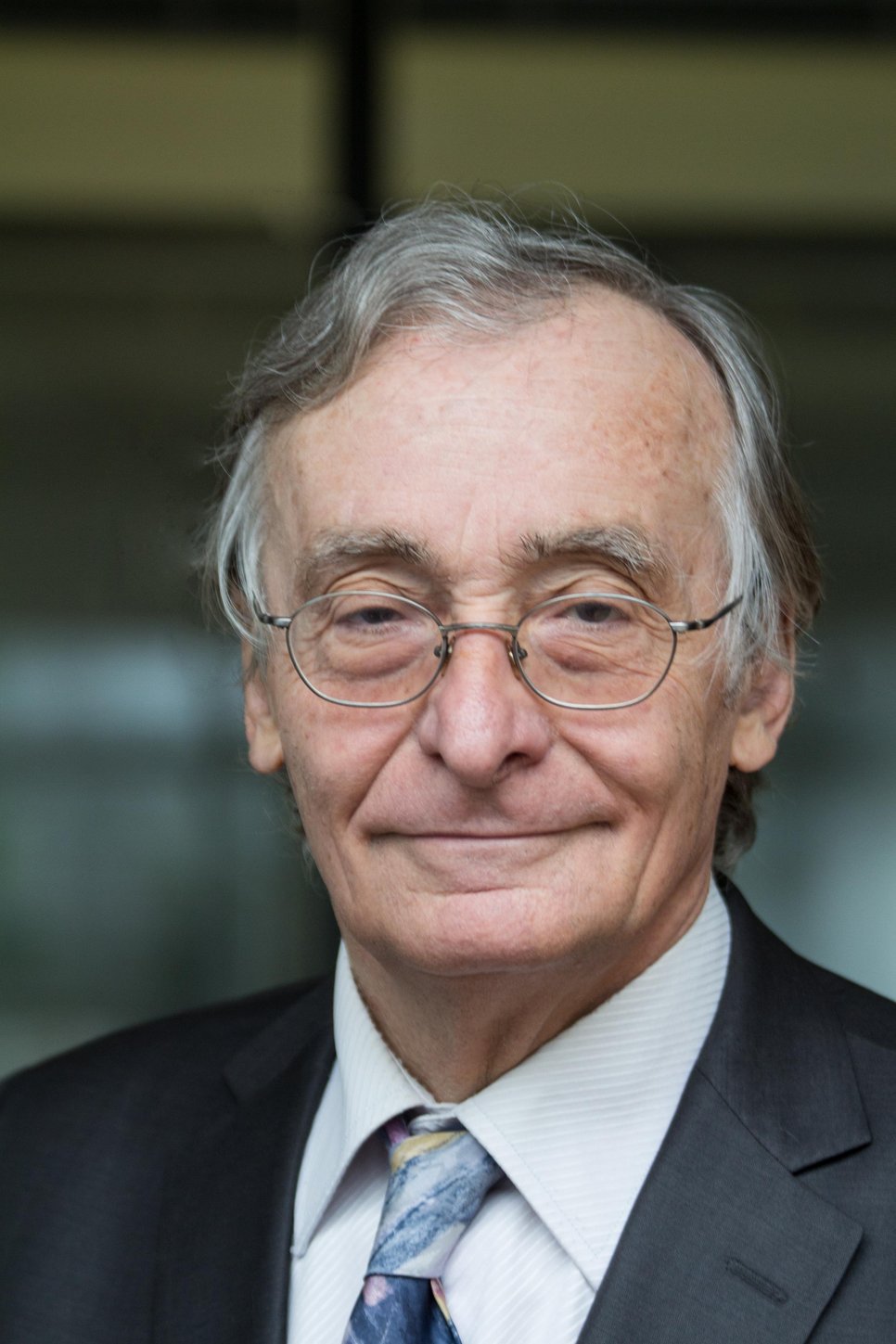One Who Thinks Differently
Robert Boyer – Portrait
In three visiting lectures at the MPIfG, the French regulation theorist Robert Boyer focused on the epistemological and institutional reasons behind the crises in macroeconomics and in the Eurozone.

“There was a time when I really wanted to become a physicist,” says Robert Boyer, the 72-year-old French economist in his office at the Max Planck Institute for the Study of Societies, where he was a visiting researcher this spring. “Then,” Boyer says, “in the mid-1960s, my research funding was cut back. Bridges and road building would have been my fate.”
But because practical application seemed less edifying to him than theoretical reflection, he complemented his training at the École Nationale des Ponts et Chaussées, the elite engineering school, with a course of study at the Institut d’Etudes Politiques de Paris, the Paris Institute for Political Studies – which is now Sciences Po, the well-known university for social sciences. Then he also studied economics at University Paris 1. After graduating from Paris 1, Boyer devoted his attention solely to political science and economics at Sciences Po.
This leap from civil engineer to political economist coincided in Robert Boyer’s life with an epochal turning point in society: born in Nice on the Côte d'Azur, Boyer came into close contact with activists in the politically turbulent Paris of the late 1960s. “We saw economic analysis essentially as a liberating tool, a tool to free life of economic principles – idealism!” Back then, everyone had read their Marx, Boyer says. “A left-wing activist had to be an expert in political economy. Because the political forces were fully aware of the logic of capitalism, they were supposed to be able to keep the economic forces in check.”
»In the politically turbulent Paris of the late 1960s a left-wing activist had to become an expert in political economy.«
France in the 1960s, with its flourishing, strongly state-oriented major industries, had become the epitome of a “mixed economy,” a synthesis between the market and the state. Thanks to careful calibration based on Keynesian teachings, the mixed economy had seemed to overcome capitalism’s vulnerability to crisis. But the oil crisis and the collapse of the post-war Bretton Woods exchange rate system brought the “Glorious Thirty” – that almost thirty-year period of growth after World War II – and the belief in the possibility of crisis-free capitalism – to an abrupt end.
The United States and Britain now witnessed the advent of neoliberal economics that visualized the liberation of capital from the regulative confines of Keynesianism. In France, however, the crisis led a group of economists took take a closer look at the history of capitalist cycles of growth and crisis.
Robert Boyer was a member of this group of scholars. Having conducted research at the Paris Centre pour la Recherche Économique et ses Applications (CEPREMAP) since 1974, he became one of the most influential minds behind regulation theory: “Regulationists see capitalism as an economic and political system that is constantly undergoing endogenous change. We ask what it is that makes capitalism repeatedly able to reorganize its own way of functioning from within.”
By focusing particularly on the crises of capitalism, the regulationists try to reveal the driving forces behind movement and change in the history of capitalism. “Today the economy is regarded as something that has evolved naturally, but we always assumed that economic phenomena are a societal construct.” For regulationists, public institutions and administrations, social relations, certain forms of mass consumption, and a lifestyle that typifies a given epoch are the foundations of the existing capitalist manifestation of that epoch. “All these elements constitute what we regulationists understand as the current brand of capitalism at a given time.”
»Regulationists see capitalism as an economic and political system that is constantly undergoing endogenous change.«
So something that has been constructed can be re-constructed, if you understand its inner logic. For Robert Boyer, regulation theory became a symbiosis of his personal history as a 1968 activist and his scholarly interest in the history of capitalism. “When I began to analyze the finance system, I was surprised: it was harder to understand than physics.” Boyer stayed at CEPREMAP for 34 years until his retirement in 2008. From 1982 on, he was also Professor and Director of Studies at the École des Hautes Études en Sciences Sociales in Paris, an institution whose faculty has included such notable researchers from the humanities and the social sciences as the historian Fernand Braudel, the sociologist Pierre Bourdieu and, most recently, the economist Thomas Piketty. Since 2012 Boyer has been a research associate at the Institut des Amériques, which is also in Paris.
At the start of his academic career, Boyer had good connections in the political world – he was a civil servant for the French Ministry of Public Works, then for the Agency for Planning and finally as an economist in the research department of the Finance Ministry – yet today he feels somewhat isolated. He criticizes the fact that political economists with viewpoints differing from those of mainstream economics are no longer welcome in the teams of advisors consulted by the politicians governing Europe today. And France, which was still a star among the European economies of the 1960s, is today seen as being almost unreformable. The economic thinking that led to the concept of a “mixed economy” in the 1960s is now considered largely invalid in many circles.
Thus, during the last forty years, the economic policy of Western countries has become dominated by tenets developed by economic analysts from a competing school of thought in the United States and Britain in the 1970s as they tried to explain the crises of that time. The orthodox thinkers, i.e., the neoliberals, now predominate in the expert commissions on economic issues in Western governments: “Since the 1970s, we have experienced a ‘naturalization’ of the economy,” claims Robert Boyer, the constructivist. “The current brand of capitalism is not understood by the public as a social construct, but rather as a naturally evolved phenomenon. Hardly anyone believes that it can be changed by political means.”
This has also become evident in the research world. Boyer deplores a “balkanization of economics,” a fragmentation of the discipline into numerous segments which no longer interact. He regrets that scholars seem to have lost a sense of the systemic foundation of the economy. He detects a lack of understanding for the theories developed by other social sciences, an isolation from the emphasis of the humanities on ambivalence and the symbolic fabrication of culture and society as conveyed by language. Economics is ignoring societal developments that cannot be expressed in purely economic terms. “For most of my colleagues, an economist is by definition independent of all other disciplines.”
Economists’ suggestions about developing a particular economic policy can only be based, he continues, on the principle of economic rationality, but such rationality should be debatable. “Being an economist today means thinking solely in terms of rationality and the market,” Boyer explains. He sees this fixation by orthodox economics on economic rationality as a normative assumption: “Everything social and political is reduced to economics. This is how the entire profession is socialized, and there is an inherent mechanism that constantly reproduces this self-conception. Those who disagree seek refuge in sociology or history. But there is an alternative: We need to develop a new contemporary political economy.”
»We need to develop a new contemporary political economy.»«
How do you feel as a scholar who began with the goal of liberating politics from economics and who must now witness the economization not only of politics but also of research institutions? “We really did try to free ourselves from the economic yoke. But the economy has succeeded in producing a surplus of such magnitude that the economic yoke is no longer perceived as such. You can imagine how disappointed a political economist must be about this state of affairs.”
From Robert Boyer’s point of view, the financial crisis of 2008 did little to alter this new invulnerability of economic rationality. “During a period of eight to twelve months in the years 2008/2009, you could sense a new openmindedness in the economic discourse. There was a lot of talk of the return of Marx as a theorist of capitalism, of Keynes as the founder of macroeconomic theory, and of Minsky with his brilliant analysis of financial capitalism. People were saying that the economy and economics would be newly constructed and that heterdox thinking would regain its validity.” Then came March 2010, the sovereign debt crisis reached its first climax with the threat of Greek insolvency, the so-called EU rescue mechanism came into play, and austerity plans were designed to help the heavily indebted countries of at the periphery of the Eurozone save their way back to economic recovery.
When Robert Boyer describes the institutional framework of the Eurozone, his hands draw huge circles in the air and his body language lends his verbal analyses a three-dimensional quality. The impression is of Boyer trying desperately to conduct the discordant orchestra of European institutions created by historic errors back to harmony. “It was quite obvious back in 2010 that Greece was never going to pay back its debt. Instead of the austerity policy we should have proposed a Marshall plan. It would have been far easier to restructure Greek debt, by which I mean cancel it.”
But according to Boyer, the historic mistake made in building the Eurozone was made much earlier by its founders François Mitterrand and Helmut Kohl: The goal of creating a single currency was primarily political: “They both wanted to advance the cause of political integration on the basis of a single European currency.” Today we see, with the wisdom of hindsight in the history of European integration, that they achieved the opposite: The common currency, which leaves no room for the regional peculiarities of differing political economies, tends today to disrupt the original peace project for Europe rather than bringing the European nations closer together. “A single currency should never be at the start of an integration process, it should be at the end,” Boyer explains.
»A single currency should never be at the start of an integration process, it should be at the end.«
In attempting to homogenize the Eurozone with its 18 different economic systems instead of seeking mechanisms that reflect the heterogeneity of Europe and its economies, policy makers have driven the countries of Europe all the more apart: “Everyone was supposed to function just like the Germans,” says Boyer, “be world champions in export. But that’s not possible! We’d then have a totally unsustainable trade surplus in Europe – not only in China!” So what was intended to unite Europe has in fact divided it. Boyer is not the only person to now fear a renationalization, a decade of economic stagnation and political nationalism. What comfort is there for someone whose theoretical thinking is being ignored by practitioners? “I take refuge in Michel Foucault: 'Travailler c’est entreprendre de penser autre chose que ce pensait avant. - Working is an attempt to think in a different way than one has before.'”
Translation: Wendy Marth

